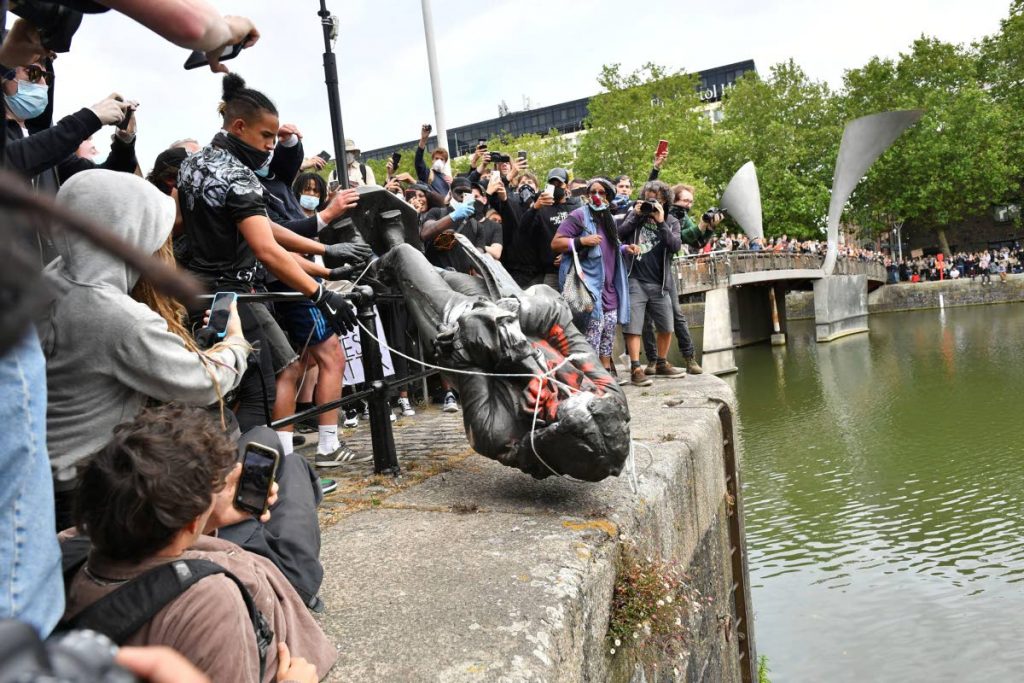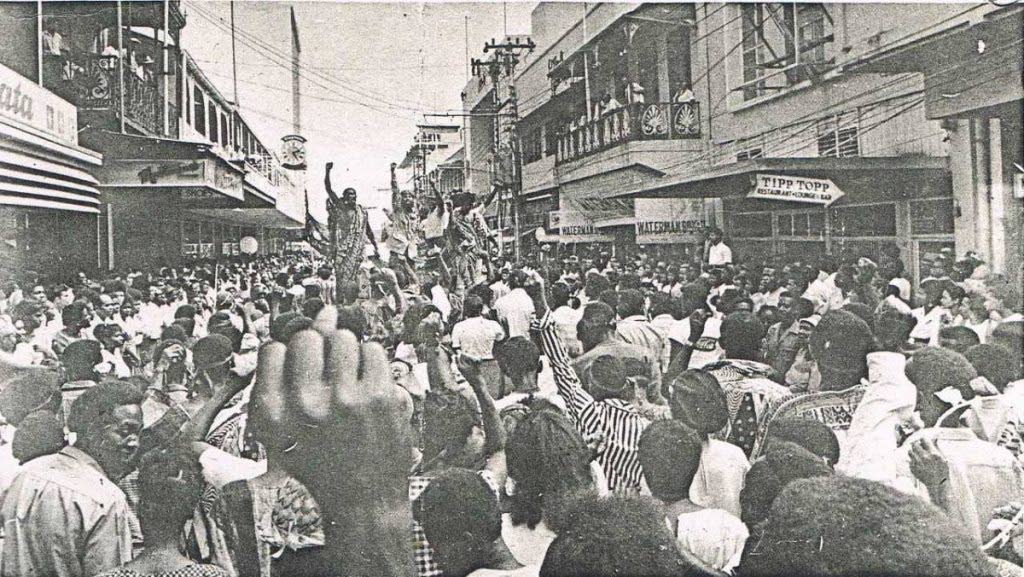Lessons in the death of George Floyd

Of course white privilege exists in TT, despite the denials of the 0.6 per cent of the population who are “white” or mostly white.
It has diminished since the days when children in primary schools were seated by teachers according to skin colour: “white up in sight. Brown further down and black at the back" as a teacher in 1960 only half-seriously explained to me.
Those were the days when bank tellers were almost all a lighter shade of pale, and “social class” depended not on money, as it is now, as the monetarist system we adopted became not only our economic system, but the value system as well, but took into account the shade of your skin, not just the colour, as my friend Georgina discovered when her sisters could pass the “paper bag test” and go into a fete, but she couldn’t.
There were, and still are, people in that 0.6 per cent who thought that that assumption of white value and privilege was ordained by God and would continue forever.
They, mostly elderly now, or with nothing else on which to hang self-esteem, live inside a fantasy bubble of their own making, embarrassing the very lives of their younger relatives. Black Power changed the outward show of that in banks and ethnic-based clubs. Education and the very existence of UWI changed much of the rest.
And protests and marches do bring change. The Black Power marches of the 70s ignited by the young students who would not accept the assumption that colour must determine their place in the world, those who challenged the power of the RC Church by forcing entrance into the cathedral, the marches through the streets, the open rebellion, the anger and defiance in the 60s that is being re-imaged on our TV screens as we see it happening again – this time in the US, where people thought that Obama’s presidency would have changed all that, but didn’t.
Where we see the UK flooded with the anger of people of all ethnicities and genders mixed in masses of protest that from above look like army ants eating paths through civilisation, ignoring social distancing because eliminating racism and the tyranny of power matters more to every one of them than their own risk of getting covid19.
My deceased husband, who was black, in one of our frequent impassioned debates on gender inequality, at a time when a sign on the grounds of the Oval, of which he was a member, said “No dogs and women past this point,” acknowledged the power of patriarchy in TT and the struggle of women for recognition of equal pay for work for equal value (which still is rare).

He pointed out that my battles for equality for women would go on for a long time. He was honest. He was a powerful man, and realistically acknowledged the distance black people in power in the Caribbean had come from the days when his father’s father was a slave, and he was not afraid of the implications of what it would take to maintain that power. What he said I paraphrase in the following quote:
"Power and privilege never surrender without a fight. If your entire life has been to live unquestioned in your position of power – a power that was culturally given to you, but you think you earned – there is almost no way you will give it up without...a battle which, if the unthinkable happened and you lost, might result in your own suffering, humiliation, and defeat.
"As long as we really want to be in power," he said, "we will take advantage of any privilege or short cut to stay there. We are not going to hand it over willingly.”
He was talking about male privilege, but it applies equally to any kind of privilege: political, racial, financial, spiritual or physical.
We do not realise how easily power can corrupt us. As the poet Pope said of vice, "seen too oft, familiar with her face,/We first endure, then pity, then embrace.”
When the man who killed George Floyd goes to court, his lawyers will earnestly argue that he didn’t mean to kill him; he was just restraining him, as he was taught to do.
The reality is that he didn’t care if he killed him. Neither did his brother officers who helped him do it, nor the system they work in and for. It didn’t really matter, because he was black.
George Floyd’s death is the catalyst that has ignited the worldwide populism of people stirring against the abuse of power. When it comes to racism it has attained critical mass, but, like a stone thrown into the pond of civilisation, it is rippling out into demands that power listen to people, which it seldom does.
We see it in rejection of the casual assumption of the right to brutality by police against civilians everywhere. In the rejection, in domestic spheres, of men’s abuse against women. We see it in macrocosm, wielded by the political leader in China against the people in Hong Kong who want self-governance; in Australia by white people who conquered, used against the indigenous population whose land they invaded.
In microcosm we see it in Trinidad by the PNM selection committee against the citizens of La Brea who want to choose their own representative and are being refused that simple democratic right by the majority that rule us.
The world is being changed by the death of the man George Floyd.
There is a lesson there that will affect us all.


Comments
"Lessons in the death of George Floyd"